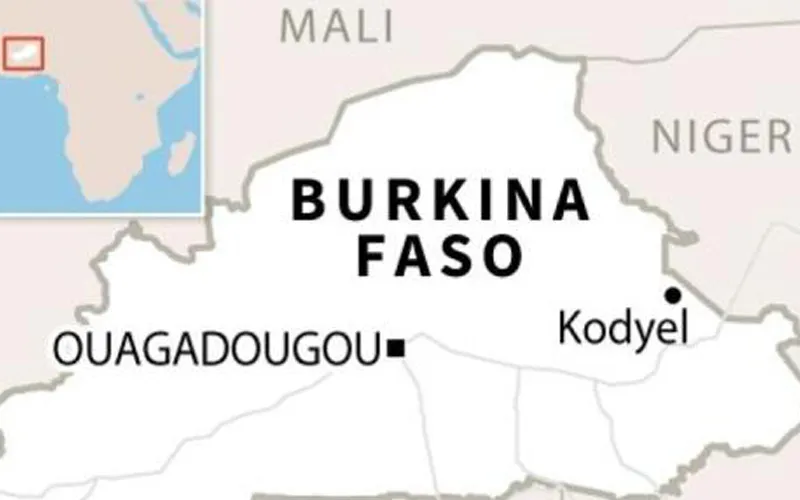He added that the Priests who were working in the Parishes that were closed down “have been relocated to secured areas (and) they only visit on Sundays to celebrate Mass with those courageous enough to stay back in the area.”
Amid the challenges in the country, Fr. Konvolbo said that the Catholic Church has been “doing a lot” to help Internally Displaced Persons (IDPs).
“Recently, a collection was organized in all Dioceses to help these people,” he said and explained, “The money raised was shared among the various camps. The Christians too have been very generous. Some have taken in some IDPs while others have provided food items, clothes and other basic necessities.”
In February, Bishops in Burkina Faso and Niger raised concerns about the increasing number of IDPs fleeing insecurity in the West African nation and called for peaceful coexistence between refugees and their host communities.
In a collective statement following the February 9-14 Plenary Assembly, members of the Episcopal Conference of Burkina-Niger (CEBN) appealed for dialogue.
(Story continues below)
“We are concerned about the still large number of IDPs whose collaboration with their hosts is not always smooth,” CEBN members said in their statement issued February 14 and shared with ACI Africa two days later.
To ensure peaceful coexistence between IDPs and their host communities, the members of CEBN recommended the strengthening of “a general dialogue” as well as an awareness campaign involving different leaders about peaceful co-existence.
In the May 6 interview with ACI Africa, Fr. Konvolbo recommended that the “government and religious leaders need to come together to foster social cohesion.”
The 59-year-old Cleric said that social cohesion is threatened by, among other factors, the economic situation of the people of God in the country.
“Terrorists are taking advantage of the economic situation of our country to lure young people into joining them,” Fr. Konvolbo said and continued, “The COVID-19 pandemic has made life difficult for most Burkinabes who can no longer provide for their families.”
He posed in reference to those who have attacked villages, “Where do they get their weapons? How do they feed? Where do they get brand new motorbikes? Where do they get drones? This means there are people working in the shadows to fuel this violence for their personal interests. We need to identify and fish them out.”
“The East of our country is also very rich in gold. It becomes a fertile ground for traffickers who flood this area for their personal gains,” Fr. Konvolbo added.
On his part, the Communication officer for the Bishops' Conference of Burkina Faso and Niger, Fr. Paul Dah told ACI Africa that “the terrorists have been able to exploit the state of poverty of the population, especially in rural areas, or the social unrest that has occurred here and there, in order to take root.”
“To the international community, we say that it is a real tragedy that is taking place in the Sahel and in Burkina Faso. And what is distressing is that the weapons of mass destruction used are not locally produced. So where do they come from and by whom do they end up in the hands of these killers?” Fr. Dah posed during the May 6 interview with ACI Africa.
Against this backdrop, Fr. Dah said, “It is necessary to examine the root cause of the problem, try to ameliorate the living conditions of the population before initiating dialogue.”
He invited the people of God in the Sahel regions to not lose hope but rather “intensify prayers for God to touch the hearts of the terrorists so they can repent from their evil ways for us to live in peace, love and harmony.”
“May God comfort the afflicted, heal the wounds of those injured in this conflict and bless and protect our nation,” Fr. Dah implored during the May 6 interview with ACI Africa.
Jude Atemanke is a Cameroonian journalist with a passion for Catholic Church communication. He holds a Bachelor’s Degree in Journalism and Mass Communication from the University of Buea in Cameroon. Currently, Jude serves as a journalist for ACI Africa.








